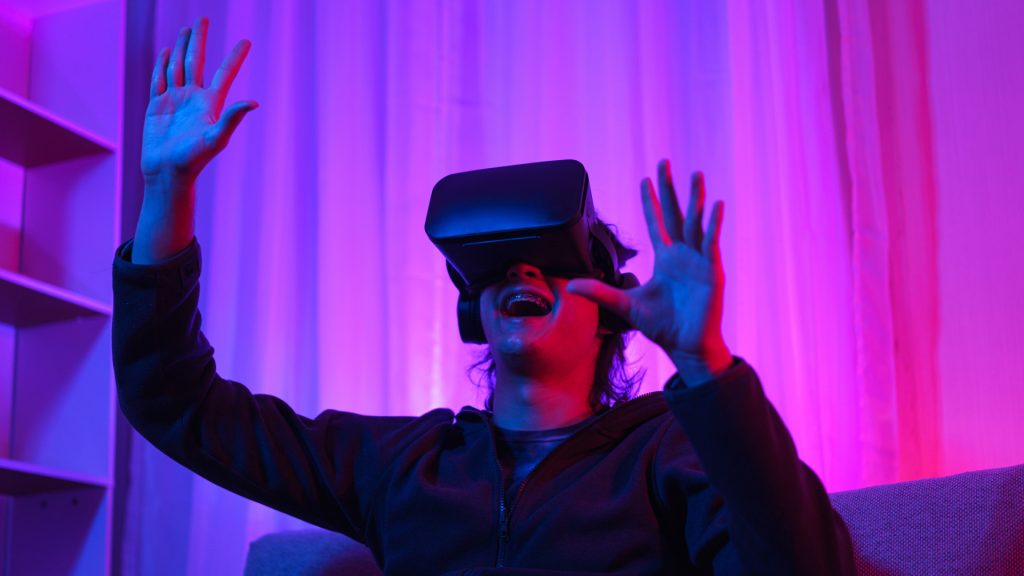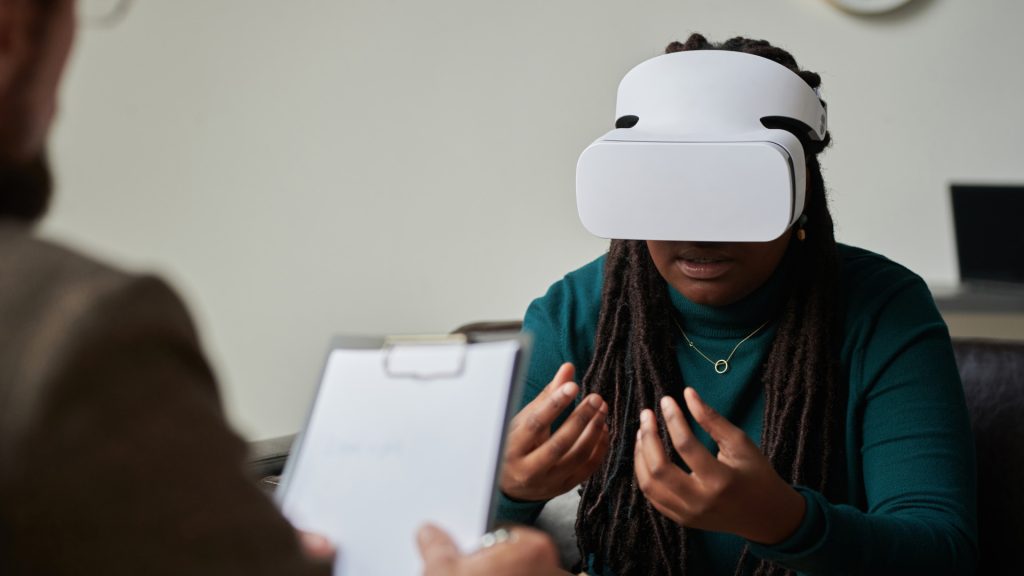
Exploring the Therapeutic Potential of Virtual Reality in Psychology
Virtual Reality (VR) technology is revolutionizing the field of psychology and therapy. The potential of VR technology in therapy is tremendous, and it has the power to change the way we approach mental health issues. The intimate nature of VR technology allows therapists to create immersive and personalized experiences that can help patients in ways that traditional therapy methods cannot.
Areas of Usage
VR technology has been used in therapy for a number of different conditions, including anxiety, phobias, post-traumatic stress disorder (PTSD), and depression. In the case of anxiety and phobias, VR technology can be used to help patients confront their fears in a controlled and safe environment. For example, a patient with a fear of flying can be immersed in a VR experience of a plane ride and gradually expose them to more and more intense simulations until they become more comfortable with the idea of flying. This can be a more effective and efficient way of treating the phobia compared to traditional methods, such as talk therapy or exposure therapy.
Another area where VR technology can be effective is in the treatment of PTSD. PTSD is a debilitating condition that can have a profound impact on a person’s life. Traditional therapy methods for PTSD can be difficult for patients, as they often involve reliving traumatic experiences, which can be distressing and trigger memories. However, VR technology can be used to help patients revisit traumatic experiences in a controlled and safe environment, which can help them process and overcome their trauma.
Use of VR in Depression Treatment
Depression is another area where VR technology can be used to help patients. Depression can be a challenging condition to treat, as it often involves a deep sense of hopelessness and a lack of motivation. VR technology can be used to create immersive and engaging experiences that can help to distract patients from their negative thoughts and feelings, providing them with a momentary respite from their depression. This can help to improve mood and increase motivation and can be an effective way of supporting patients in their journey to recovery.
One of the main advantages of VR technology in therapy is the personalized and intimate nature of the experience. VR technology allows therapists to create unique and customized experiences that are tailored to each patient’s individual needs and goals. This personalization can help to increase the effectiveness of the therapy and make it more engaging for the patient.
Psychological Experiences That Feel Real
Another advantage of VR technology is that it can provide a safe and controlled environment for patients to confront their fears and emotions. In traditional therapy, patients may be required to revisit traumatic experiences, which can be distressing and triggering. With VR technology, patients can revisit these experiences in a controlled and safe environment, which can help to minimize the risk of negative reactions and increase the effectiveness of the therapy.
Despite the many benefits of VR technology in therapy, there are also some limitations that need to be considered. One of the main limitations is the cost, as VR technology can be expensive to implement and maintain. Additionally, VR technology can be intimidating and overwhelming for some patients, especially those who are unfamiliar with technology. It is also important to consider the potential privacy concerns that may arise from the use of VR technology in therapy, as patients may be concerned about the use of their personal information.
As Webikondri, we care about virtual reality and build the technologies of the future for you. We combine our metaverse resources and digital skills that we have for many years for you.
In conclusion, VR technology is a promising and exciting development in the field of psychology and therapy. The intimate and personalized nature of the experience, as well as the ability to provide a safe and controlled environment for patients, make VR technology an effective tool for treating a range of mental health conditions. However, it is important to consider the limitations of VR technology and to ensure that it is used in a responsible and ethical manner. Overall, VR technology has the potential to revolutionize the way we approach mental health and wellness and has the power to change the lives of millions of people.





